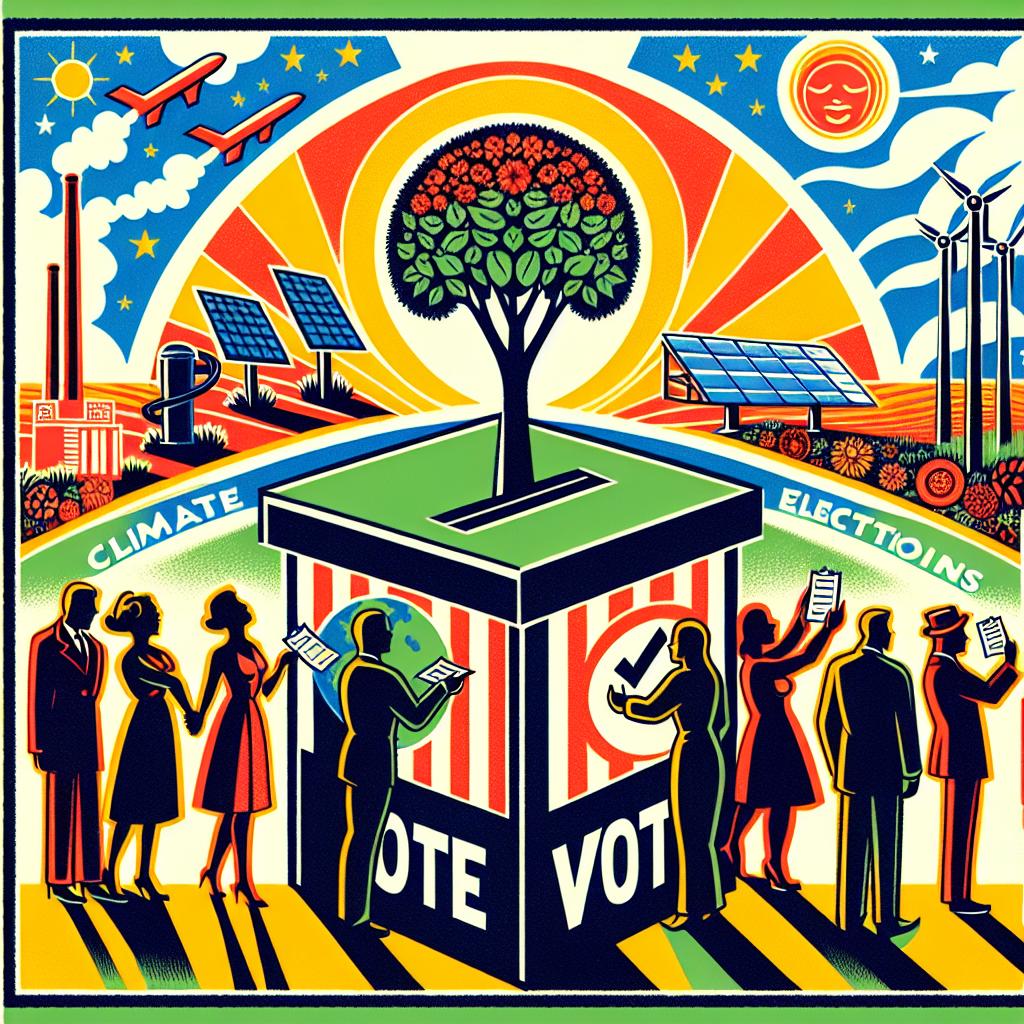Understanding the Stakes: Five Key Elections in 2024
As the world turns its gaze towards the 2024 electoral landscape, several pivotal contests loom large on the horizon. These elections—not just in the United States but also across major democracies, including the nations of the European Union—stand to influence global climate policies in profound ways. They could determine not only which candidates ascend to leadership roles but also the broader trajectory of climate action that will affect our planet for a generation or longer.
Imagine a world where decisive climate action is implemented across continents or one where regulatory frameworks are weakened under the influence of fossil fuel interests. Which scenario will materialize depends greatly on the outcomes of these elections.
Historical Context: Climate Challenges and Political Will
The history of climate action is a tapestry woven from threads of politics, science, and advocacy. Each key moment in climate history has either advanced or stalled the momentum for change based on who has been in charge. A lack of political will has often led to inertia around issues that scientists urge are immediate and pressing. Meanwhile, the Pariser Agreement, signed in 2015, was a significant milestone that showcased what international cooperation might look like when the political will aligns with urgent global problems.
Results from 2024 could move nations toward aggressive strides in legislation and international agreements or retreat into isolationism—prioritizing short-term economic gains over long-term sustainability. For instance, the U.S. elections, which will determine not just the presidency but also control of Congress, represent a critical inflection point for the nation’s climate strategy. Will it evolve into a green leader promoting renewable energy and decarbonization, or will it roll back progress to favor incumbent fossil fuel industries?
Highlighting the EU: A Union at a Crossroads
The European Union’s own elections will likely reflect similar tensions. The ensemble of nations, collectively responsible for a substantial amount of the world’s greenhouse gas emissions, faces strategic challenges as they grapple with energy dependence from non-EU sources and domestic issues. This could either galvanize ambitious renewable energy initiatives or risk reverting to outdated solutions scrambling for immediate relief from rising energy costs, particularly in light of ongoing geopolitical tensions.
As the EU elections approach, one must consider which parties will capture public sentiment—those advocating for urgent climate solutions or those that focus on more traditional economic agendas. While some member states have achieved commendable leads in renewable energy adoption, other nations lag behind, creating a patchwork of policies across the continent that either conflicts with or enhances shared goals.

The Ripple Effect: Global Implications of Local Choices
The intertwining nature of global economies means elections not only affect their immediate region but resonate worldwide. As leaders on these continents vie for electoral victories, their stance on climate policies carry the potential to propel bold action or hinder collaborative efforts. Analysts predict that the outcomes of these elections may shape how aggressively nations pursue their climate commitments, with implications reaching far beyond national borders.
Many observers believe that efforts to achieve global warming targets of under 1.5 degrees Celsius hinge on the sovereignty inspired by these forthcoming elections. If leaders embracing robust climate action are elected, we might see a harmonious push towards stringent measures to reduce emissions across industries and promote sustainable technologies. Conversely, the rise of populist or authoritarian leaders with anti-climate sentiments might radically shift the focus of these nations to prioritize short-term survival and economic output over environmental policies. This, in turn, could jeopardize international climate agreements previously reached in good faith.
Long-term Impact: Shaping the Future of Climate Diplomacy
The decisions made in these 2024 elections represent long-term shifts that might set climate policy direction for decades to come. Future leaders will grapple with the obligations of commitments to previous agreements, necessitating clear and actionable strategies to either meet those obligations or negotiate new arrangements within the geopolitical sphere. This critical juncture is not simply about policy but rather the frameworks through which cooperation among nations can be renewed or stifled further.
Ultimately, climate action will require direct and sustained engagement not just at a local or national level but globally—an interdependence encapsulated by the metaphor of borrowing from future generations. In the coming months, as citizens cast their votes, the evolution of climate policy will sit in a precarious balance—waiting, like so many scales, to be tipped by active engagement in a democratic process.
As citizens reflective of this time in history, consider the agency wielded within our grasp. Empower yourself with facts, understand the nuances, and get involved. The 2024 elections will empower decisions capable of moving our planet toward more sustainable practices. Who will emerge victorious may define not just their country but the future of the very world we share.



